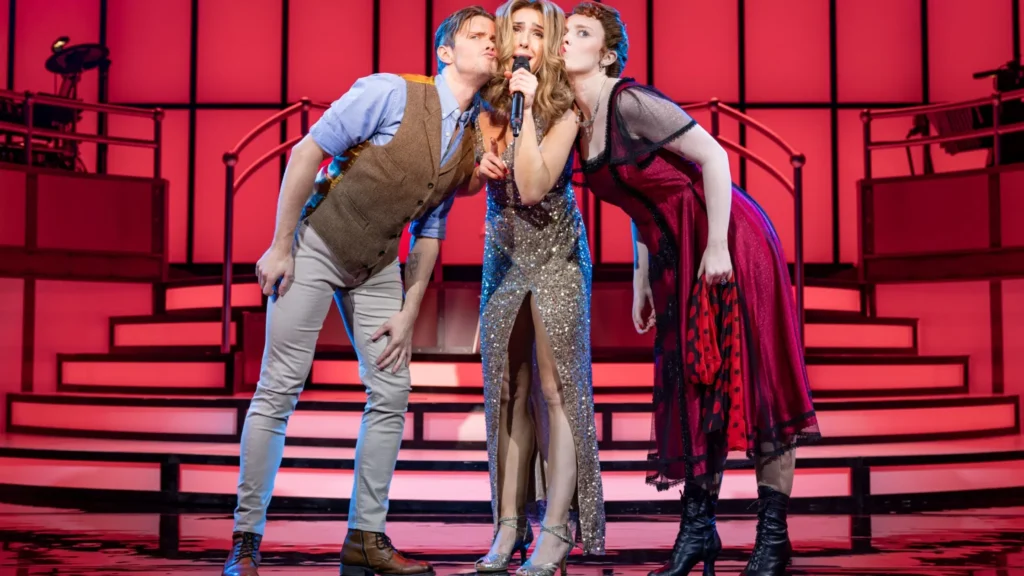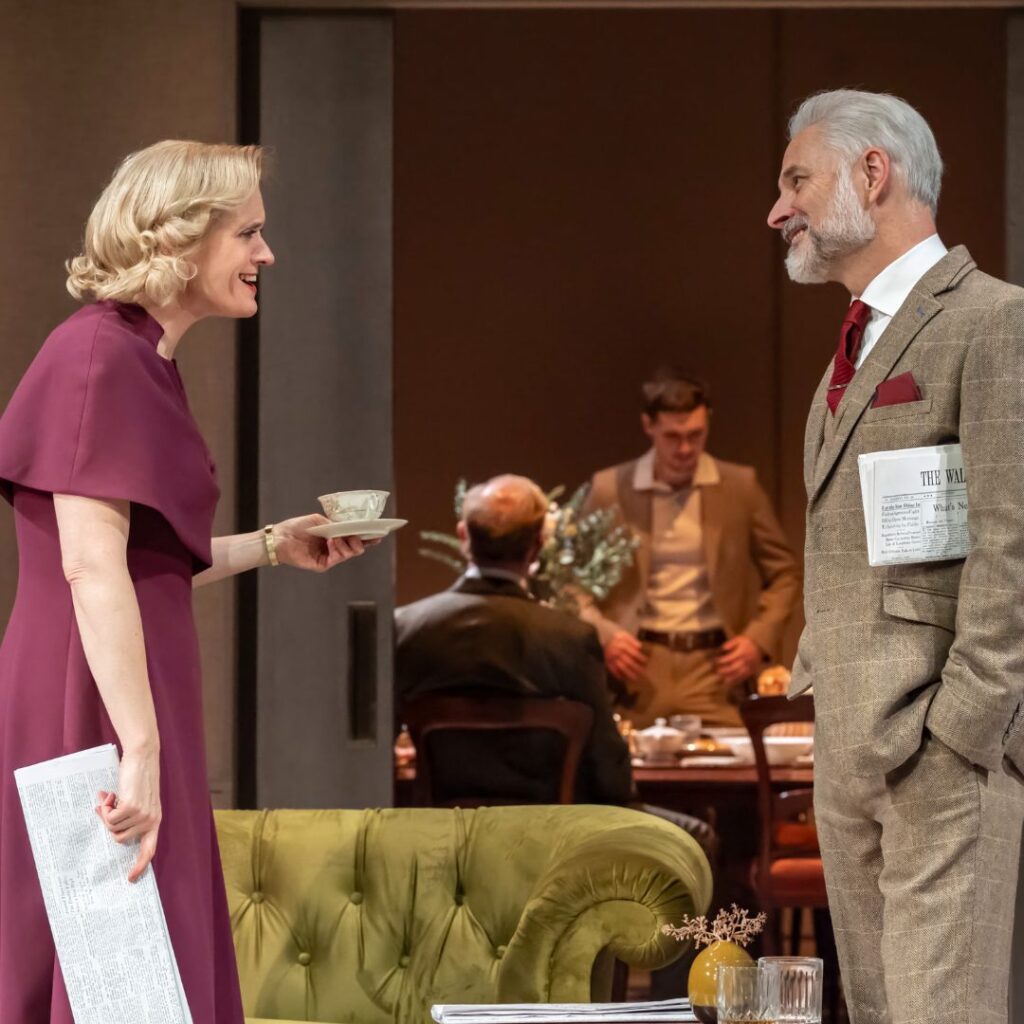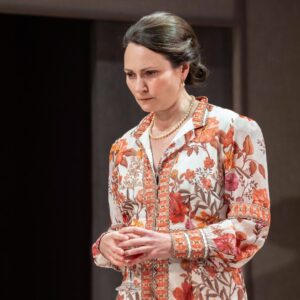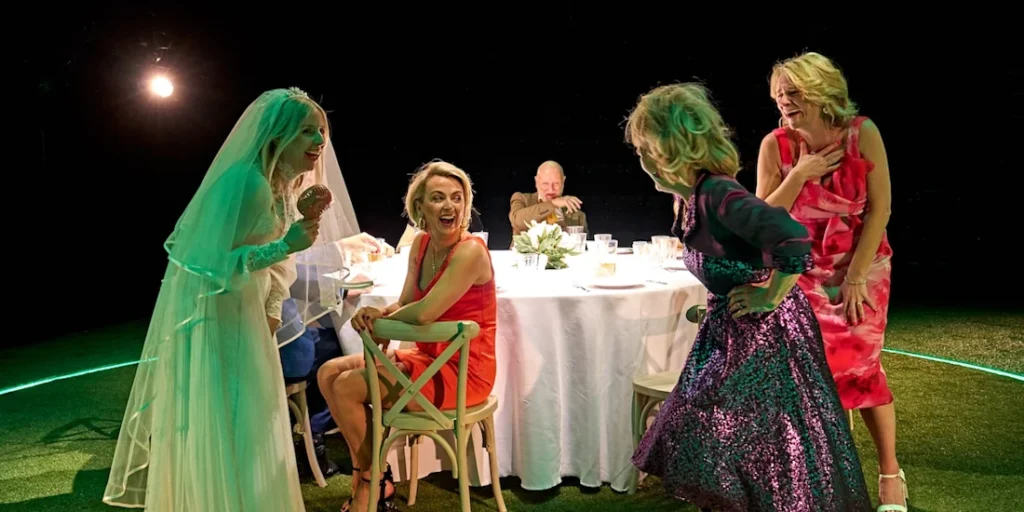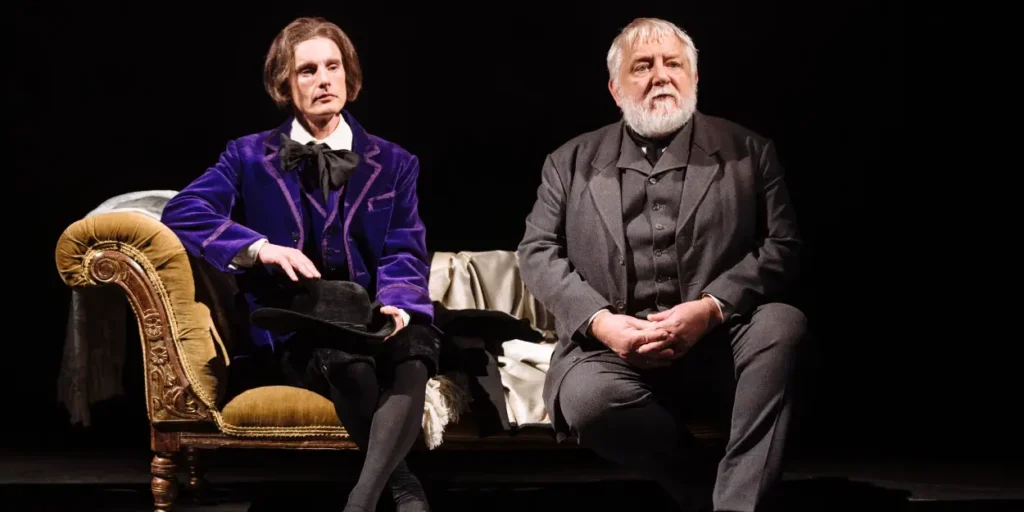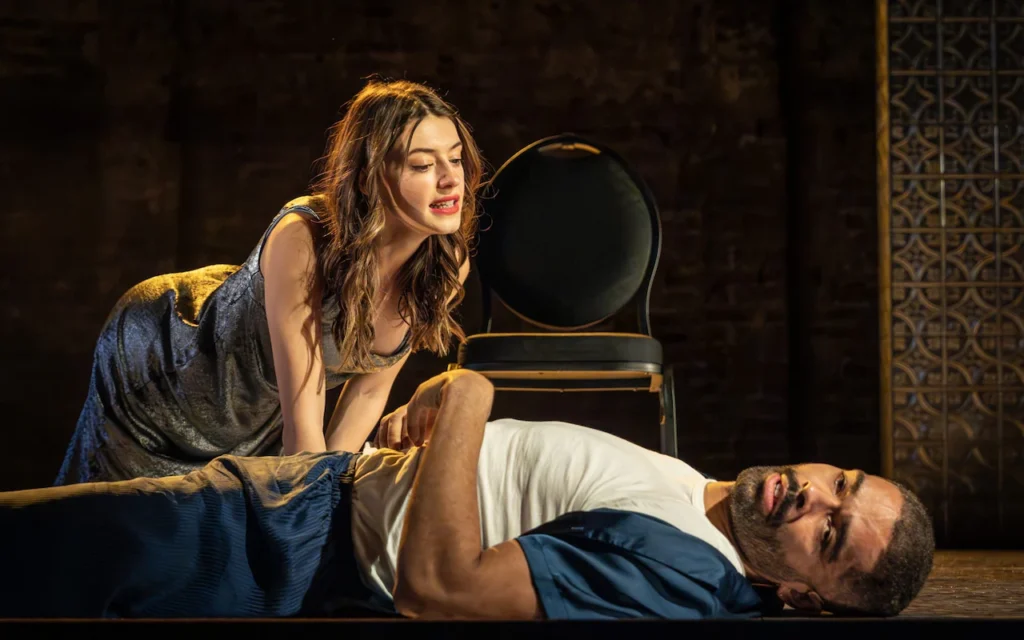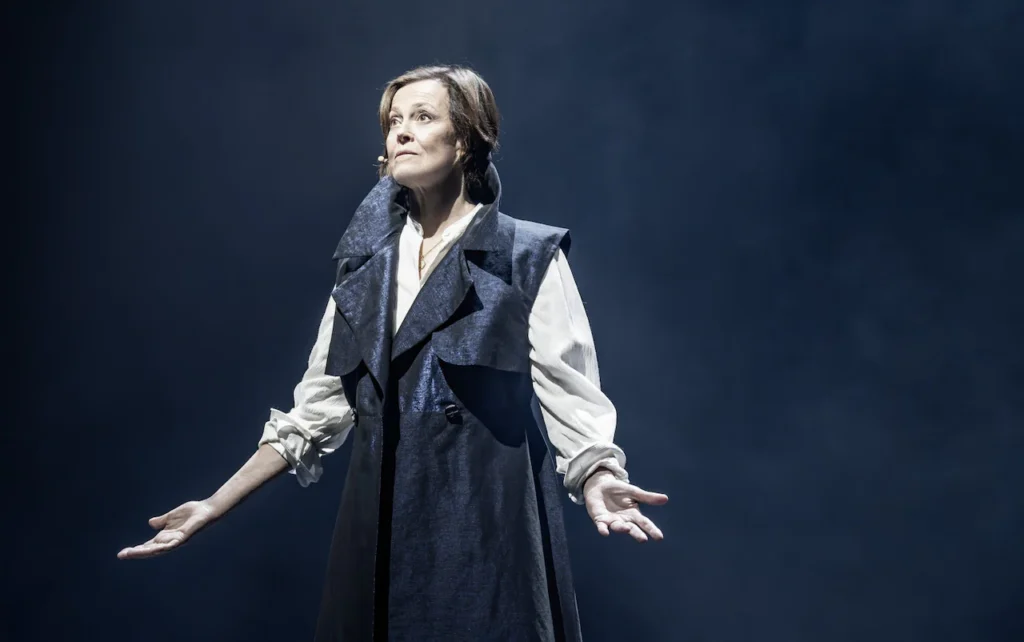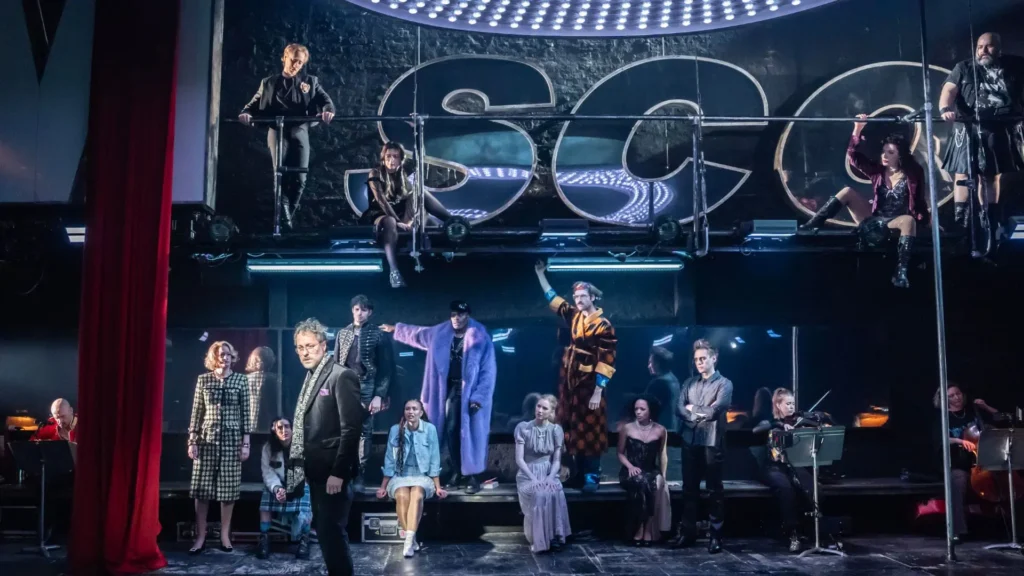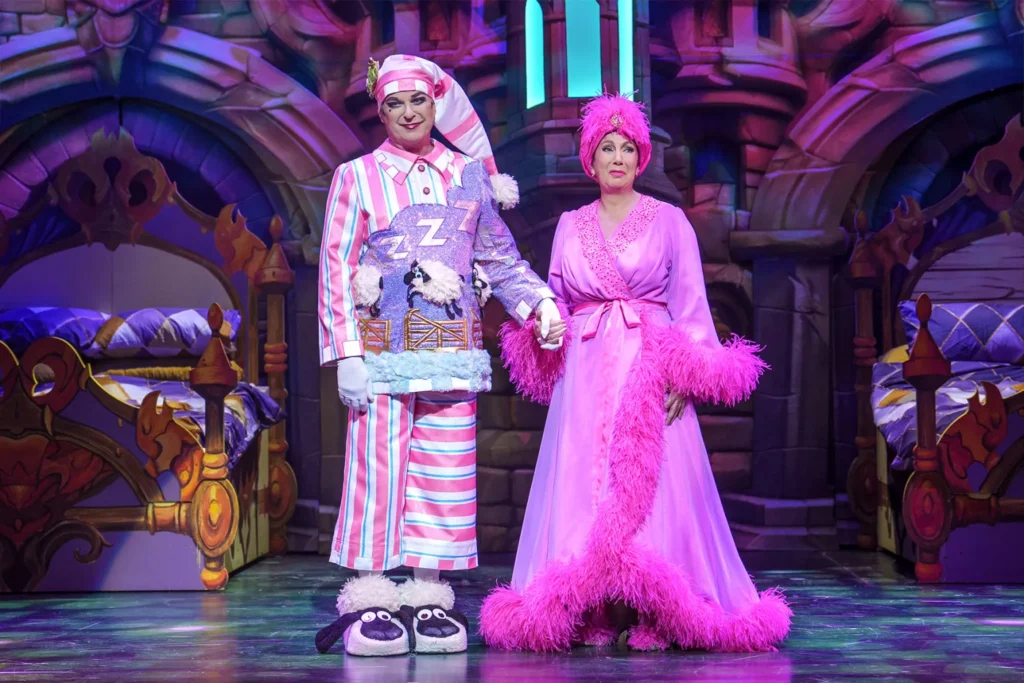Perfect, or too perfect?
Gielgud Theatre
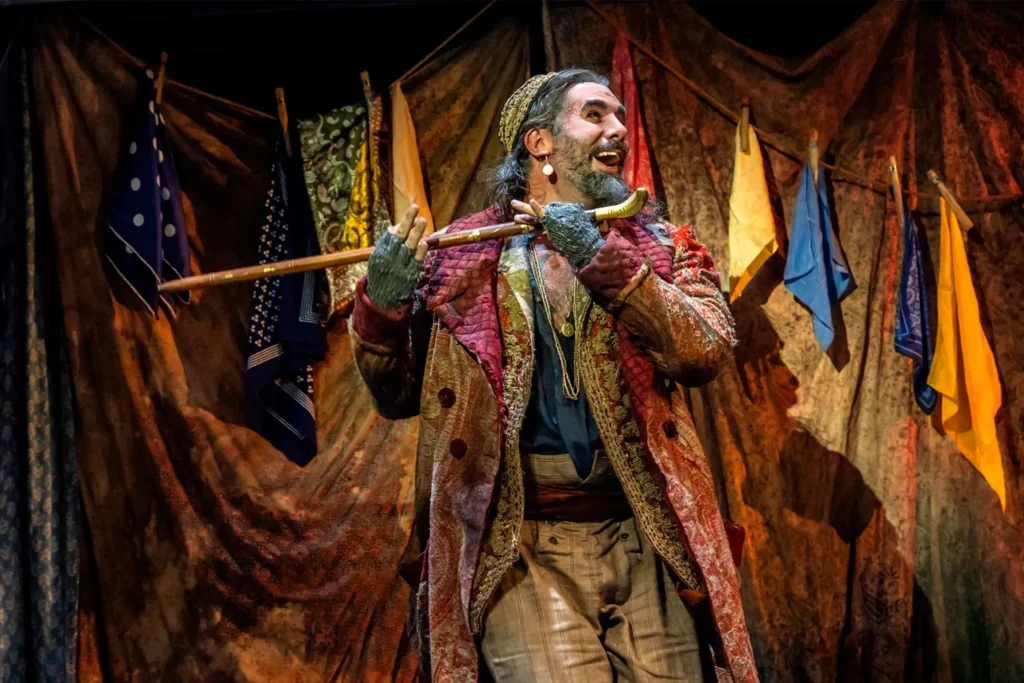
Lionel Bart’s Oliver! is one of the few, perhaps the only, bona fide British musical from the Golden Age when shows were packed with memorable songs. The legendary producer Cameron Mackintosh has loved Oliver! since childhood and returned to it again and again. His latest production was praised in many 5 star reviews for Matthew Bourne‘s choreography, Paule Constable’s dramatic lighting, Lez Brotherston’s intimate set, Simon Lipkin‘s portrayal of Fagin and for being a little darker than past incarnations. But some found it too old-fashioned and lacking in bite.
[Links to full reviews are included but a number are behind paywalls and therefore may not be accessible]
Marianka Swain at LondonTheatre (5★) delivered her customary thoughtful analysis: ‘Bart’s musical can be something of a tonal challenge: steeped in the darkness of Dickens’ novel, yet simultaneously packed with jaunty tunes and cockney knees-up dance numbers. Bourne (who choreographs and co-directs with Jean-Pierre van der Spuy), manages that balancing act perfectly, giving us plenty of grime and grit alongside transporting pleasures.’ She declared ‘the true star is Paule Constable and Ben Jacobs’s sublime lighting design, which brings quite literal light and shade to the production. It’s genuinely terrifying when the villainous Bill Sikes looms out of the smoky darkness, his menacing shadow the first thing we see.’
WhatsOnStage‘s Sarah Crompton (5★) noted, ‘Its quality lies in the way that the collaborators … make a contrast between constant movement and stillness, allowing the focus to slide from broad, bright dance scenes full of life, to powerfully arresting moments of peril and sadness.’ Adam Bloodworth at CityAM (5★) declared, ‘director and choreographer Matthew Bourne has surely opened the musical of the year with his astounding dance sequences. It’s especially the ensemble numbers that are sheer staggering feats of imagination, offering insane levels of detail to bring Victorian London back to life.’
Helen Hawkins on the Arts Desk (5★) praised the ‘impeccable singing and dancing, teamed with a brilliant set, atmospheric lighting and a Poor Theatre design that makes the staging oddly intimate’. Allya Al-Hassan at Broadway World (5★) pointed out, ‘Whilst retaining the joy and exuberance of Bart’s music, it does not shy away from the dark heart of child poverty, exploitation and violence of Charles Dickens’ story. It also manages to have moments of pure theatrical comedy. It is a deft and masterful achievement.’
Neil Fisher for The Times (5★) added a star to his colleague Clive Davis’ previous Chichester review: ‘you can’t fault the verve with which Bourne drills the big numbers, nor the cast’s bonhomie.’ Of the show’s Fagin, he said, ‘Lipkin captures both the plight of the traumatised immigrant – and of anyone trying to lead a good life in a dark and devious world’. The Telegraph‘s Dominic Cavendish (5★) enjoyed ‘dollops of theatrical delight’, and said ‘the whole thing is delivered with such tightly choreographed panache’.
Dominic Maxwell in The Sunday Times (4★) described how ‘Matthew Bourne’s sumptuous production at the Gielgud Theatre in London gives us a Victorian London of shadows, spotlights and smoke. It looks dangerous, but gorgeous. Nice job.’
The Observer’s Susannah Clapp (4) picked out ‘Superb lighting by Paule Constable and Ben Jacobs shows the action as if through Oliver’s eyes: a harsh glitter of grey over the workhouse; a deceptive golden glow for Fagin’s den.’
The Stage‘s Sam Marlowe (4★) described how ‘Designer Lez Brotherston delivers a murky London of steel gantries, pawnshops, pubs and coffee houses, bustling with picture-perfect denizens: self-important men with mutton chops, moustaches and stovepipe hats, and purse-lipped women in mob caps with formidable bosoms. Bourne’s buoyant, nimble choreography is wrapped around darker drama that makes its mark in broad strokes.’
Not everyone was so impressed. Fiona Mountford at i-news (3★) said ‘rarely have I felt so awkwardly aware of a piece’s fundamental pretence…Everything here looks precise and lovely, immaculately well-drilled, but it’s almost impossible to feel emotionally invested.’
Andrjez Lukowski at Time Out (3★) felt it lacked punch. Take Simon Lipkin’s Fagin: ‘Making him so nice he won’t offend anyone is certainly one idea, but it does further defang Dickens’s yarn.’ He contended ‘The biggest flaw, though, is one that’s haunted the show for decades: Oliver himself is just pretty bland.’
Having reviewed it in Chichester, The Guardian decided the production didn’t require a second review
Critics’ Average Review 4.4
Value Rating 46 (Value rating is the Average Critic Rating divided by the typical ticket price)
Oliver! is at the Gielgud Theatre until 28 September 2025. Click here to buy tickets direct.
If you’ve seen Oliver! at the Gielgud Theatre, please add your review and rating below
